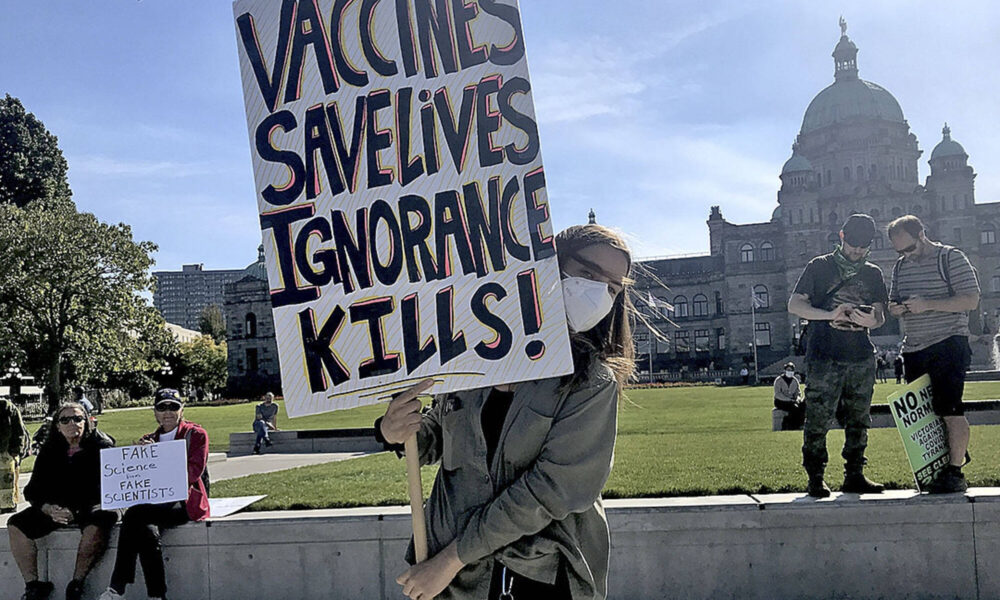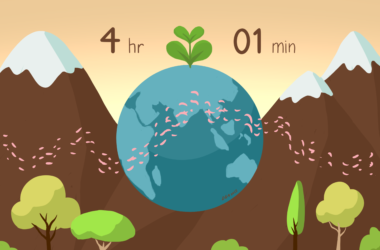As of Nov. 14, 76.46 per cent of Quebec’s population is fully vaccinated. Even before the first day of vaccine administration in Canada mid-December 2020, COVID-19 vaccines have been shrouded in doubt and conspiracy. Anti-vaccination (anti-vaxx) protests have plagued the streets of Montreal almost every weekend for a year, spurred by reasons ranging from protesting vaccine mandates to fighting the implementation of vaccine passports. Recently, protestors worldwide have adopted a new strategy––making claims that being unvaccinated is akin to oppression experienced by racial and religious minorities. Individuals who participate in this rhetoric must understand that their decision to remain unvaccinated, no matter the reason behind it, cannot be analogized to the experiences of those whose fundamental and unchangeable positionalities result in experiences of oppression.
One of the most popular arguments against Quebec’s vaccine passport is that it inhibits unvaccinated people from partaking in everyday activities based solely on their decision to remain unvaccinated. This is viewed by some as oppressive––so much so that it has even been compared to living under the Soviet Union, Communist East Germany, or apartheid South Africa. Needless to say, this is not the case. These measures are in place to prioritize public safety; to protect those most vulnerable to COVID-19 as well as those unable to get vaccinated, like children under 12. The prioritization of communal health over individual, unfounded skepticism is not a marker of an oppressive state but instead integral to a fair society. It shows that the state is willing to take the necessary steps to get through this pandemic.
Above all, it is both offensive and completely ignorant to claim experiences that result from choosing to remain unvaccinated are similar to those of racialized and religious minorities. Anti-vaxxers seem to be grasping at straws in an effort to victimize themselves. It is only those who have been privileged their entire lives who would place their mistrust of science above the lives of those around them. Some anti-vaxxers have been seen sporting Stars of David, attempting to equate their experience of being unvaccinated to the oppression that Jewish people faced during the Holocaust. This behaviour is horrifying and unacceptable—if being told to get a life-saving vaccine is the most traumatic thing someone has faced, that is an extremely privileged spot to be in. If this is a method of gaining empathy from marginalized communities, it is an uninformed and ineffective one.
Claims of unfair treatment for being barred from entering restaurants also blatantly disregards the racism that is embedded in anti-vaxx movements. The first protests against vaccinations arose because inoculations were originally part of non-western cultures across China, the Middle East, and North Africa. When an enslaved African man, Onesimus, taught a minister the method, it was met with public outcry—fueled by racist tropes—that the practice must be dangerous. Now, anti-vaxx movements target minority communities who already have justified mistrust of healthcare systems in order to spread misinformation. For example, Children’s Health Defense, an anti-vaccine organization, created a film against the COVID-19 vaccine that was aimed squarely at Black communities, drawing direct links between the vaccine and real healthcare atrocities, such as the eugenics movement. This pointed misinformation only exacerbates the fact that minority communities are already disproportionately affected by COVID-19.
Preying on minority communities and trying to take advantage of the systemic abuses they have faced in medical spaces is representative of the shameless nature of anti-vaxx movements. Tactics like comparisons to genocides and experiences of religious and racial oppression are a corruption of those real experiences. So while choosing to forgo the COVID-19 vaccine is a personal choice, it does not reign over public safety. Despite the controversy it may cause, public health is more important than one person’s selfish refusal to care for others.









